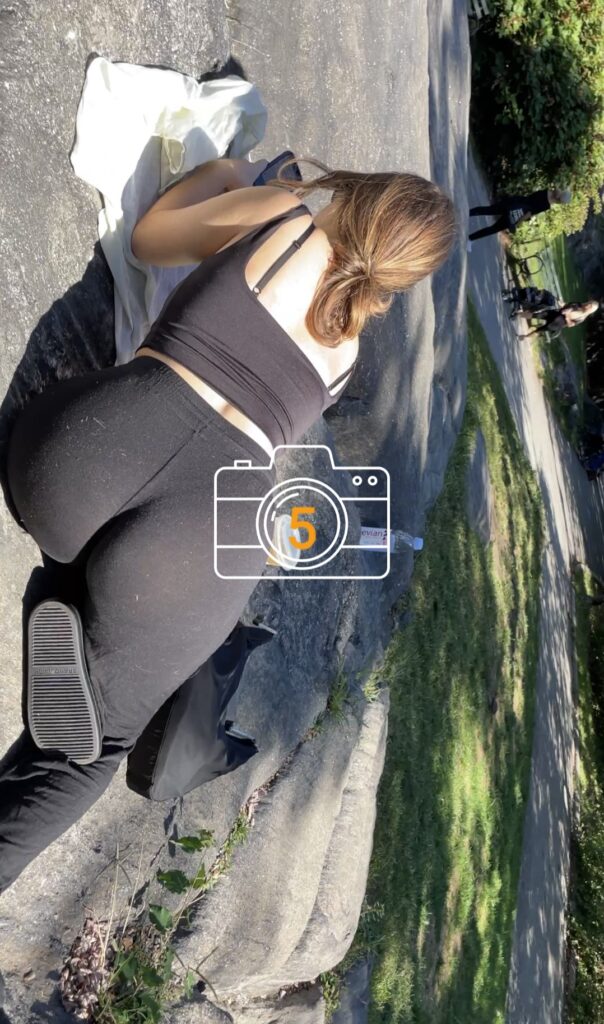Discovering The Real Voices: Understanding The Candid Teen Experience
Hearing what young people truly think and feel is, you know, incredibly important. It's almost like looking through a window into their world, seeing things just as they are, without any filters. This kind of genuine openness from teenagers, that honest way of sharing their thoughts and feelings, is what we mean when we talk about the "candid teen." It's about recognizing the value in their unscripted moments and their true perspectives.
It's very easy to miss the real stories if we only focus on what's presented on the surface. Young people, particularly teenagers, are often dealing with a lot, and their authentic expressions can offer so much insight into their lives and the world around them. Understanding these candid moments can help us connect with them more deeply and, arguably, support them better as they grow.
When we think about understanding communities and the resources that help us do that, organizations like Candid come to mind. They bring together information on philanthropy and social impact, helping people find what they need to make a difference. In a similar way, getting to know the candid teen involves seeking out the true information and perspectives that shape our collective future, so it's really about gathering genuine insights.
- Teach Me First Comic Free
- Somalia Wasmo
- Emily Compagno
- Remoteiot Web Ssh Example
- Prank Goes Wrong Manhwa
Table of Contents
- What Does "Candid Teen" Really Mean?
- Why Genuine Teen Voices Matter
- How to Encourage Candidness in Young People
- Navigating the Digital World with Candidness
- Frequently Asked Questions
What Does "Candid Teen" Really Mean?
When we talk about a "candid teen," we're really thinking about a young person who expresses themselves without pretense. It means they're being genuine, not putting on an act for anyone. This could be in their conversations, their creative work, or even just how they behave when they feel comfortable. It's about their true self shining through, you know?
This idea of being candid is a bit different from just being honest, too. It’s more about a spontaneous kind of openness, a willingness to show their real thoughts and feelings as they happen. It’s not always planned or rehearsed, and that's what makes it so valuable. That, is that, kind of raw authenticity is something we often seek in many parts of life.
Beyond the Surface: Authentic Expression
Authentic expression from teenagers goes beyond just saying what's on their mind. It includes how they show their feelings, their passions, and their struggles. For instance, a teen might express themselves very candidly through art, music, or writing, even if they don't say much out loud. It's a way for them to process their world and share it with others, often without even realizing how much they're revealing.
This kind of expression is so important for their own growth and for those around them. When teens feel safe enough to be truly themselves, it helps them understand who they are and what they care about. It also allows others to really see and appreciate them for who they are, rather than for some idea of who they should be. So, encouraging this kind of genuine sharing is really key.
The Power of Open Dialogue
Open dialogue with teenagers is basically where candidness can really come alive. When young people feel they can speak freely, without judgment, they are much more likely to share their true thoughts and concerns. This isn't always easy to achieve, as there can be many reasons why a teen might hold back. But when it happens, it's incredibly powerful.
These conversations can cover a wide range of topics, from their daily experiences at school to bigger questions about their future or what's happening in the world. Having these open talks helps them feel heard and understood, which is something every person, regardless of age, really needs. It also helps adults gain a much clearer picture of the challenges and joys that young people face, which is pretty important.
Why Genuine Teen Voices Matter
The voices of candid teens are more than just personal stories; they are, in some respects, vital insights into the current generation and the future. Ignoring these voices means missing out on valuable perspectives that can shape communities, policies, and even how we approach education and mental well-being. Their honesty can highlight issues that adults might not even be aware of, you know?
Think about it: teenagers are growing up in a world that's constantly changing, and their experiences are unique to this time. Their candid reflections offer a mirror to society, showing us what's working and what isn't from a fresh viewpoint. This makes their perspectives incredibly valuable for anyone looking to understand the world better, and it's something we should really listen to.
Shaping a Better Future
When young people are encouraged to share their true thoughts, they often bring up ideas that can lead to positive changes. For instance, they might point out unfairness, suggest new ways to solve problems, or even inspire others with their creativity and passion. Their candidness can be a driving force for innovation and social progress, actually.
By listening to these genuine voices, we can create environments that are more responsive to their needs and aspirations. This includes everything from developing better school programs to building stronger community support systems. It's about making sure the future is built with their input, not just for them, which is a big deal.
Building Trust and Connection
Encouraging candidness in teens is also about building stronger relationships. When a young person feels safe enough to be truly open, it shows a deep level of trust. This trust is a two-way street; it means adults are also showing that they are reliable and genuinely care about what the teen has to say. It's like, a foundation for all good relationships, really.
These connections, built on honesty and understanding, are incredibly important for a teen's emotional health and development. They provide a support system that can help young people navigate challenges and feel less alone. So, fostering an environment where candidness is welcomed isn't just about getting information; it's about nurturing well-being, too.
How to Encourage Candidness in Young People
Getting teenagers to open up candidly isn't always straightforward, but there are definitely ways to make it easier. It often starts with creating an atmosphere where they feel completely safe and respected. This means being patient, showing genuine interest, and making it clear that their thoughts and feelings are valued, no matter what they are. It’s not about forcing them, but rather, inviting them to share.
Remember, young people are often testing boundaries and finding their own voice, so consistency in your approach is very important. It might take time for them to feel comfortable enough to be truly candid, and that’s perfectly normal. Just keep the door open, so to speak, and let them know you’re there to listen without judgment, which is pretty much the main thing.
Creating Safe Spaces for Sharing
A safe space for a teen means an environment where they won't be judged, criticized, or dismissed for what they say. This could be a physical place, like a comfortable corner at home, or it could be a feeling of emotional security. It's about knowing that their vulnerability will be met with understanding, not ridicule or anger. That, is that, truly crucial for them to feel okay sharing.
For example, if a teen expresses a strong opinion or a difficult emotion, responding with calm curiosity rather than immediate correction can make a huge difference. Asking "Can you tell me more about that?" instead of "Why would you think that?" invites further candidness. It really shows them that you’re listening to understand, which is a big deal.
Listening with an Open Heart
Listening to a candid teen means more than just hearing their words; it means trying to understand the feelings and experiences behind those words. This requires active listening, where you pay full attention, show empathy, and avoid interrupting or planning your response while they're still speaking. It's about being fully present for them, you know?
Sometimes, a teen just needs to be heard without any advice or solutions being offered. They might simply need to vent or process their thoughts out loud. Acknowledging their feelings with phrases like "That sounds really tough" or "I can see why you feel that way" can be incredibly validating and encourage even more openness. It's a way of saying, "I get it," without necessarily agreeing or disagreeing.
Resources for Understanding Youth Perspectives
For those looking to deepen their understanding of young people and the social landscape they inhabit, there are many valuable resources available. For example, organizations like Candid, formed when GuideStar and Foundation Center merged, provide a world-leading source of information on philanthropy, fundraising, and grant programs. While not directly focused on individual teens, their data on nonprofits and social sector work can illuminate broader trends affecting youth initiatives and well-being. It's a way to get a wider view, in a way.
You can use their 990 finder for publicly available nonprofit filings, or explore their training opportunities designed to help people working in the social sector succeed. This kind of information helps us understand the bigger picture of support systems and challenges for young people in various communities. To learn more about youth development initiatives on our site, and link to this page understanding teen challenges, you can find further details. For external resources, organizations like UNICEF often publish extensive reports and data on youth well-being and development globally. You can find out more about youth well-being from reputable sources like UNICEF.
Navigating the Digital World with Candidness
The digital world plays a huge role in how today's teens express themselves, and it's a very complex space. While it offers amazing opportunities for connection and creativity, it also presents challenges to genuine candidness. Young people are often curating their online presence, which can make it harder to see their true selves. It's like, they're always performing a little bit, you know?
Understanding this digital landscape is key to helping teens navigate it in a healthy way. It's about encouraging them to be authentic online, while also being aware of the pressures and potential pitfalls. This isn't always easy, but it’s a crucial part of their lives today. So, talking about it openly is pretty important.
Social Media and Self-Expression
Social media platforms are, in some respects, huge stages for teen self-expression. They use these spaces to share their interests, connect with friends, and explore their identities. This can be a wonderful outlet for creativity and finding like-minded communities. However, the pressure to present a "perfect" image can sometimes stifle true candidness. It’s a bit of a balancing act for them.
It's important to help teens understand that what they see online isn't always the full picture, and that it's okay to be their real selves, even if it's not always "perfect." Encouraging them to use social media for genuine connection and creative expression, rather than just seeking validation, can foster a more candid online presence. That, is that, a very valuable lesson.
Finding Authentic Connections Online
Despite the curated nature of some online spaces, many teens do find very authentic connections there. They might join groups based on shared hobbies, discuss common interests, or even find support networks for personal challenges. These connections can be incredibly valuable, especially for teens who might feel isolated in their immediate surroundings. It's like, a whole other world of friendship, sometimes.
Encouraging teens to seek out these genuine connections, and to be their true selves within them, can help them build a stronger sense of belonging. It's about teaching them to discern between superficial interactions and truly meaningful ones, and to value their own candid contributions to online communities. This helps them use the internet as a tool for genuine growth, too.
Frequently Asked Questions
How can teens be more candid in their daily lives?
Teens can become more candid by practicing expressing their thoughts and feelings in safe environments, like with trusted family members or close friends. It helps to start small, perhaps by sharing a simple opinion or a feeling about something that happened during their day. Over time, this builds confidence in being open, so it's a gradual process, really.
Why is honest communication so important for teenagers?
Honest communication is very important for teenagers because it helps them build strong, healthy relationships based on trust. It also allows them to process their emotions, solve problems more effectively, and feel understood by others. When they can speak openly, it supports their mental well-being and helps them navigate the challenges of growing up, which is pretty vital.
What are some ways adults can help teens express themselves openly?
Adults can help teens express themselves openly by creating a non-judgmental space where the teen feels heard. This means actively listening without interrupting, validating their feelings, and showing empathy, even if you don't agree with everything they say. Asking open-ended questions and sharing some of your own experiences can also encourage them to open up, too.

Tight jeans and shorts candid teens - Candid Teens

cute girls - Candid Teens

outside creepshots - Candid Teens